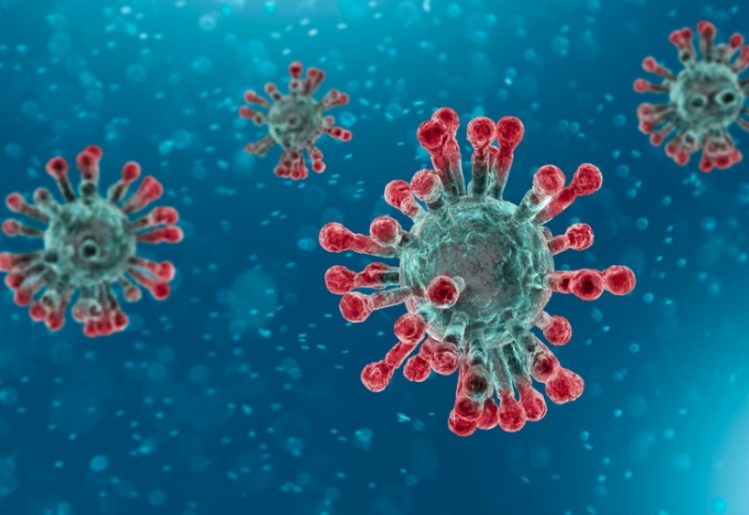Protect Yourself From Viruses: Keep Your Immune System Strong
As we face the pandemic caused by the spread of the COVID-19 virus, researchers all over the world are looking for ways to treat the condition the virus causes in humans. While some research examines repurposing existing medications for the treatment of the virus, other research suggests that a strong immune system plays a crucial role in mitigating the effects of the virus. While scientists look for a cure, existing research shows you can do much to protect yourself from COVID-19 and other viruses by maintaining a strong and healthy immune system.
Researchers Say You Can Protect Yourself From COVID-19
 In one case study, researchers at Australia's University of Melbourne examined the records of an infected middle-aged woman, who traveled between Wuhan, China and Melbourne. The 47-year-old subject exhibited moderate symptoms of the COVID-19 infection, but was otherwise healthy and did not suffer from other pre-existing conditions.
In one case study, researchers at Australia's University of Melbourne examined the records of an infected middle-aged woman, who traveled between Wuhan, China and Melbourne. The 47-year-old subject exhibited moderate symptoms of the COVID-19 infection, but was otherwise healthy and did not suffer from other pre-existing conditions.
The author of the study, Katherine Kedzierska, noted that the woman's recovery was similar to that which would be seen in someone suffering from a typical case of the flu. She added that, although this is a virus that's new to humans, the woman's immune system still responded to effectively protect the body at a cellular level. Professor Kedzierska is also hopeful that the studied immune response to the virus may help researchers understand what the body is lacking in cases where the viral infection has fatal results.
Timing may also play a part in the successful recovery of an individual, as the woman in this study sought treatment just four days after the onset of her symptoms. Upon experiencing a sore throat, lethargy, dry cough, fever, shortness of breath and chest pain, she immediately sought medical treatment. Once diagnosed, the patient committed to a period of self-isolation on her 11th day of infection and, by the 13th day, she was free of all symptoms.
Health Implications for Compromised Individuals
The results of the case study mentioned above also corroborate the findings that those suffering from chronic health conditions, such as diabetes, hypertension and heart disease, are at a greater risk for both contracting COVID-19 and requiring hospitalization for treatment. Those suffering from pre-existing health conditions are also more likely to die from the complications caused by the infection.
In other research, 191 subjects from Wuhan were included in a study to evaluate the effects of the COVID-19 infection. Of that group, 54 died and two-thirds of the fatalities occurred where there was a pre-existing health condition that compromised the strength of the immune system. The researchers noted that, among the subjects who died, 26 suffered from hypertension, 17 were diabetics, 13 suffered from heart disease and four had COPD (chronic obstructive pulmonary disease).
In addition to the conditions observed in the study, the researchers warn that any other condition that causes an individual to become immuno-suppressed can put them at greater risk. This includes cancer patients receiving chemotherapy, those diagnosed with HIV and those taking medications that suppress the immune system. This also includes people being treated for rheumatoid arthritis and pregnant women.
How Can You Build Up Your Immune System?
Since treatment options for COVID-19 are still under study, doctors can only try to manage the symptoms, ensure patients are drinking enough fluids and resort to ventilators to aid in respiration. At this point, perhaps the best option is to protect yourself from COVID-19 by strengthening your immune system. These tips can help you bolster your health and build up a stronger immune system that will help you resist and recover from any virus you may be exposed to.
Eat a Healthier Diet
This is the perfect time to ditch your high-carb diet and to limit the amount of sugar you consume. Instead, look for low-carb alternatives and add more fruits and vegetables to each meal. Eating more plant-based foods will provide your body with the antioxidants it needs to fight off disease-causing oxidative stress. Additionally, you'll be giving your body more fiber, vitamins and minerals.
Spend More Time in the Sun
Exercising will help build up your immune system by strengthening your muscles, tissue and bones. Doing that exercise outdoors will expose you to the sun's rays and, while too much exposure increases the risk of skin cancer, this is also the best source of vitamin D. Your immune system relies on vitamin D to regulate responses to injury and illness, which is why a vitamin D deficiency has been linked to a greater risk of infection.
Boost the Health of Your Gut Microbiome
Your gut microbiome maintains a thriving community of helpful bacteria, which helps promote a stronger immune system. You can improve the diversity of your gut microbiome by eating more plant-based foods, particularly those containing probiotics. You can find probiotics in fermented foods, such as plain yogurt, sauerkraut, kimchi, kombucha, pickles and cottage cheese.
Get Enough Quality Sleep
 When you don't get enough quality sleep, your body produces a stress hormone called cortisol. This hormone acts to keep you awake, which promotes the release of more cortisol. Since your body relies on sleep to repair your body and reboot itself, that cycle of sleeplessness keeps your body from going through this restorative process. As a result, your immune system becomes suppressed and won't be able to react as strongly to infections that may develop.
When you don't get enough quality sleep, your body produces a stress hormone called cortisol. This hormone acts to keep you awake, which promotes the release of more cortisol. Since your body relies on sleep to repair your body and reboot itself, that cycle of sleeplessness keeps your body from going through this restorative process. As a result, your immune system becomes suppressed and won't be able to react as strongly to infections that may develop.
Get More Exercise
As previously mentioned, exercise helps you grow stronger muscles and bones that will protect you against the risks of injury and illness. Additionally, physical activity speeds up the metabolism, so antibodies and white blood cells, which are essential components of the immune system, circulate the body more rapidly. As a result, your immune system will detect infections sooner and respond to them more effectively.





